 |
|
APHA is the oldest and most diverse organization of public health professionals in the world. The association aims to protect all Americans and their communities from preventable, serious health threats and strives to assure community-based health promotion and disease prevention activities and preventive health services are universally accessible in the United States. APHA represents a broad array of health providers, educators, environmentalists, policymakers and health officials at all levels working both within and outside governmental organizations and educational institutions. APHA's activities are guided by three overarching priorities:
APHA has been advancing quality improvement in both health care delivery and public health and has been on the forefront of ensuring quality in public health systems through its standards-setting texts, education programs and policies that promote quality improvement in a range of public health systems. This effort is in keeping with the consensus statement developed by the Public Health Quality Forum under the leadership of the Assistant Secretary for Health, U.S. Department of Health and Human Services. View the Statement on Quality in the Public Health System. APHA’s quality initiatives include but are not limited to:
APHA designed and displays a Continuous Quality Improvement (CQI) exhibit at APHA Annual Meetings from which information is shared with public health professionals on quality improvement and in support of the accreditation of public health departments. APHA has produced the following documents related to quality improvement:
Accreditation APHA partners with its state and local APHA Affiliates to advance accreditation. Recognizing the unique and critical role that APHA Affiliates have in informing the accreditation process in state, local, tribal and territorial communities, APHA partners with its Affiliates to advance the accreditation of public health departments to achieve standards for health that ultimately improve leadership and the quality of public health services provided to their communities. More information is available at www.apha.org. |
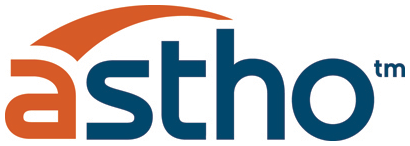 |
|
ASTHO is the national nonprofit organization representing public health agencies in the United States, the U.S. territories, and the District of Columbia, and the more than 100,000 public health professionals these agencies employ. ASTHO members, the chief health officials of these jurisdictions, formulate and influence sound public health policy and ensure excellence in state-based public health practice. ASTHO’s primary function is to track, evaluate, and advise members on the impact and formation of public or private health policy that may affect them and to provide them with guidance and technical assistance on improving the nation's health. ASTHO is committed to ensuring that its members have the technical support needed to become accredited and continuously improve the performance of their health agencies.
|
|
Centers for Disease Control and Prevention/ Office for State, Tribal, Local and Territorial Support |
|
The Centers for Disease Control and Prevention (CDC) works 24/7 saving lives, protecting people from health threats, and saving money through prevention. Whether these threats are global or domestic, chronic or acute, curable or preventable, natural disaster or deliberate attack, CDC is the nation’s health protection agency. CDC’s Office for State, Tribal, Local and Territorial Support (OSTLTS) coordinates CDC’s accreditation- and quality improvement- related activities. OSTLTS was formed to support and improve public health at all levels. The mission of OSTLTS is to advance US public health agency and system performance, capacity, agility, and resilience. For more information, visit http://www.cdc.gov/stltpublichealth/AboutOSTLTS/index.html. |
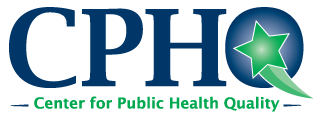 |
|
The Center for Public Health Quality (CPHQ) is a national resource for quality improvement among public health organizations. CPHQ's mission is to collaborate with local, state, and national partners to transform the public health system to foster and support continuous quality improvement (CQI). CPHQ's vision is that all public health organizations will have an embedded culture of CQI that will help to achieve the highest possible level of health for all. CPHQ achieves this by providing training and tools, sharing what works in public health, promoting performance measurement, leading strategic QI initiatives, and engaging leadership to drive organizational change. Highlighted below are some of CPHQ's wide range of tools, resources, and technical assistance: Training and Support: One component of building a CQI infrastructure includes improving the capacity of the public health workforce to use quality improvement methods and tools. CPHQ offers a variety of education and training programs. CPHQ can work with your team to design customized services to meet your specific needs. QI Toolbox: The QI Toolbox is a collection of resources and tools designed to be a “one-stop shopping" destination for improvement for public health organizations. It consists of three components:
Consultation & Technical Support: CPHQ's team and faculty have extensive and unique expertise to help public health organizations and public health partners dramatically improve their efficiency and effectiveness to meet the myriad challenges they face in a rapidly changing environment. CPHQ's expertise in improvement science, change management and leadership, project management, public health and healthcare practice, and organizational culture to assist organizations with innovative solutions to their unique challenges and opportunities. For more information on CPHQ's quality improvement resources, visit www.centerforpublichealthquality.org or send an email to info@phquality.org |
|
The U.S. Department of Health & Human Services’ Office of the Assistant Secretary for Health (OASH) oversees 12 core public health offices, regional health offices across the nation and 10 Presidential and Secretarial advisory committees. The Public Health System, Finance and Quality Program (PHSFQ), a program within OASH focuses predominantly on system policies, analysis of financial sustainability, and quality management in the field of public health. In 2008, a Public Health Quality Forum (PHQF) was established and led by OASH in response to calls for enhanced system-wide attention to quality in public health. Representatives on the PHQF include directors or designees from HHS operating and staff divisions and major external stakeholder organizations. Emerging from the work of the PHQF was a National Framework on Public Health Quality that includes the first definition of public health quality, nine aims for improvement of quality in public health, six priority areas, and a vision for public health quality. Supporting the selection of the nine aims and six priority areas is evidence on drivers of cost, methods for reducing costs, and quality gaps in the overall health system. Below are relevant public health quality documents published by OASH: Consensus Statement http://www.hhs.gov/ash/initiatives/quality/quality/phqf-consensus-statement.pdf Developed by the PHQF, the Consensus Statement serves to enhance and guide goals of new and existing programs that promote quality in public health. The purpose of having a national framework is to facilitate consistent implementation of quality improvement processes in public health practices at the Federal, State, local level and agencies that have a focus on public health. The nine aims for public health quality, described in this Consensus Statement define characteristics of quality in the public health system. Priority Areas for Improvement of Quality in Public Health http://www.hhs.gov/ash/initiatives/quality/quality/improvequality2010.pdf Six priority areas for improvement of quality in public health were unveiled in this report. Three criteria were used to select these priority areas. They are: impact, improvability and practice variability. The priority areas reflect the complex interactive nature of the public health system, since lack of quality in one area can potentially negatively impact quality in another. The report describes each of the six priority areas in detail, including the reason for selection and how addressing these areas will help achieve desired results. |
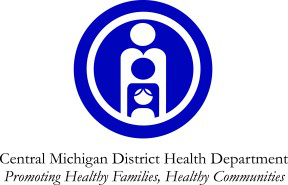 |
|
The Central Michigan District Health Department, (CMDHD), is a six county local health department, which serves the residents of Arenac, Clare, Gladwin, Isabella, Osceola, and Roscommon counties. Our mission is to promote health and physical well-being by providing preventive health care, education and environmental safety to all members of the community. The Central Michigan District Health Department vision is to become recognized by the public as the local advocate in promoting, assessing and safeguarding public health and the environment. The Central Michigan District Health Department is dedicated to the clients we serve and our client satisfaction surveys are a good way to know how we as an agency are performing. We have made a concerted effort to increase the number of survey responses for our well and septic system inspection programs. By utilizing the nine-step quality improvement plan learned through the Multi-State Learning Collaborative, the team initiated a projected intended to assess and improve the surveying process. Through review and revision of the survey distribution policy and the survey form itself, the team was able to gather quantitative and qualitative data to assess customer satisfaction of services specific to on-site septic and water programs. Here is a link to the Final MLC-3 Report: http://www.cmdhd.org/pdf/grants/mlc-3/final_report.pdf We have now taken the customer satisfaction survey process to a new level by allowing our customers to complete and submit the survey on-line through our website www.cmdhd.org. We are conducting a quality improvement project to increase the number of surveys received for all agency programs. Subsequent quality improvement projects will evolve as the survey results are reviewed at monthly staff meetings. |
 |
|
NACCHO is a national non-profit organization serving the 2700 local health departments across the United States. NACCHO’s vision is health, equity, and security for all people in their communities through public health policies and services. NACCHO’s mission is to be a leader, partner, catalyst, and voice for local health departments in order to ensure the conditions that promote health and equity, combat disease, and improve the quality and length of all lives. Committed to assisting local health departments with continuous performance improvement, NACCHO offers a wide range of tools, resources, and technical assistance. Highlighted below are some of NACCHO’s performance improvement resources:
For more information on NACCHO’s performance improvement resources, contact Jessica Solomon Fisher at jfisher@naccho.org or visit www.naccho.org/accreditation. |
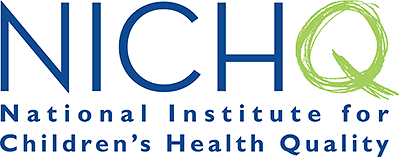 |
|
NICHQ is an independent, nonprofit organization working for more than a decade to improve children's health. It helps organizations and professionals who share this mission (typically, healthcare professionals and delivery organizations, foundations, government agencies, and community organizations) make breakthrough improvements so children and families live healthier lives. NICHQ is an invaluable resource for these organizations and professionals as experts in the "How" and the "What" to improve for children's health. Visit NICHQ's website (www.nichq.org) to learn more about the organization's unique combination of approaches, methods and expertise as well as for resources and inspiration for driving improvement. |
 |
National Network of Public Health Institutes (NNPHI) Dedicated to the vision of improving public health through innovation, NNPHI is the national membership network committed to helping public health institutes (PHIs) promote and sustain improved health and wellness for all. Created in 2001 as a forum for PHIs, today NNPHI convenes its members and partners at the local, state, and national levels in numerous and varied efforts to improve the public’s health. NNPHI engages its member PHIs, public health practitioners, and national public health partners in building capacity for community health improvement, quality improvement, and public health accreditation. Below is a highlight of related resources available from NNPHI:
|
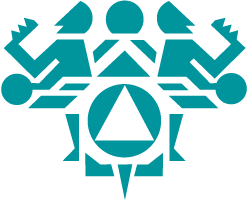 |
NPAIHBNorthwest Portland Area Indian Health Board |
|
Established in 1972, the Northwest Portland Area Indian Health Board (NPAIHB) is a non-profit tribal advisory organization serving the 43 federally recognized tribes of Oregon, Washington, and Idaho. Each member tribe appoints a Delegate via tribal resolution, and meets quarterly to direct and oversee all activities of NPAIHB. Our mission is to eliminate health disparities and improve the quality of life of American Indians and Alaska Natives by supporting Northwest Tribes in their delivery of culturally appropriate, high quality healthcare. NPAIHB was one of 8 tribal grantees to be chosen to participate in the Centers for Disease Control and Prevention’s National Public Health Improvement Initiative program, aimed at systematically increasing performance management capacity and improving the ability to meet national public health standards. Beginning in 2011, the NPAIHB began facilitating education and technical support to increase the organizational capacity and Quality Improvement (QI) efforts of its 43 member tribes, while also promoting the integration of a "QI culture" and linking QI with public health accreditation of tribally-based health departments. |
 |
|
A national nonprofit organization dedicated to improving the public’s health by strengthening the quality and performance of public health practice. Public Health Foundation’s main areas of focus include quality improvement, performance management, and workforce development, offering valuable resources, tools, and information for both individuals and organizations with the responsibility to improve the public’s health. Notable programs from PHF include Quality Improvement Services and Technical Assistance, the TRAIN Learning Management System, Learning Resource Center of affordable, high quality training materials, and staff support for the Council on Linkages Between Academia and Public Health Practice. Other useful quality improvement resources from PHF include:
|
 |
|
The Public Health Informatics Institute (a program of the Task Force for Global Health) partners with and is funded through cooperative agreements, grants and contracts with national public health organizations, healthcare organizations, foundations and government agencies, to further our collective interest in improving public health through the effective application of information and technology. The Institute directs a number of projects aimed at improving the use of information technology in public health, in areas such as health IT strategy, health information exchange, workforce capacity development, policy advocacy and performance improvement. While our projects fall into three different areas of focus – Requirements Development, Practice Support and Informatics Academy - we approach each project by focusing on our core tenets: collaboration and consensus-building among participants and stakeholders to improve public health performance and outcomes. The products of our work are made freely available to all in public health. We encourage practitioners, policy makers, funders and others interested in the advancement of public health practice to download and use the many valuable resources you will find on our website.
|
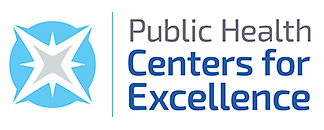 |
|
The Public Health Centers for Excellence is a partnership between two leaders in public health quality and innovation: the Spokane Regional Health District and the Tacoma-Pierce County Health Department. We provide consultation, training and facilitation to support your health department’s journey to excellence and accreditation. Our goal is to give state, local and tribal health departments the tools and skills to build quality programs and processes to improve the health of their communities. We specialize in providing practical strategies and tools for:
Visit our website at www.phcfe.org to find a variety of performance management and quality improvement information, training, and other resources tailored to public health. |